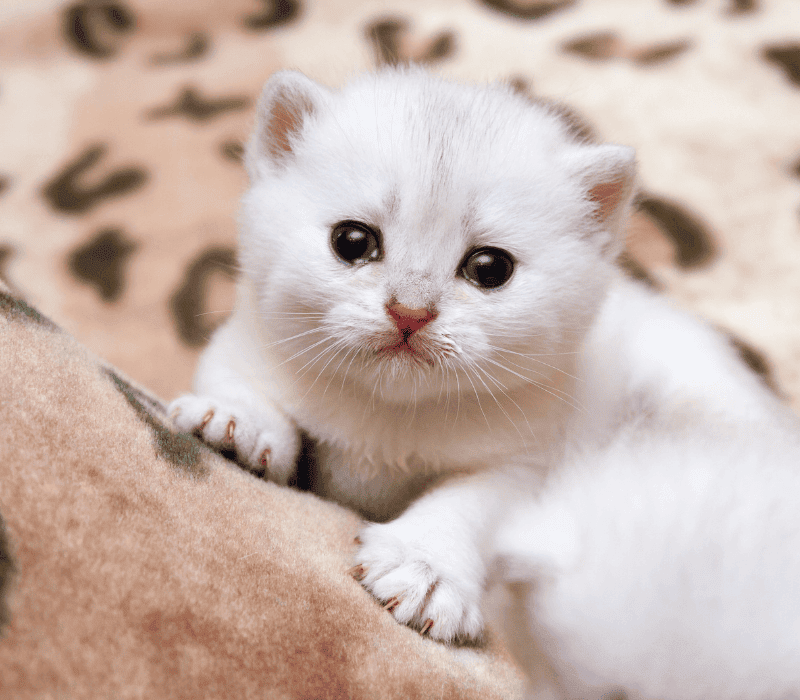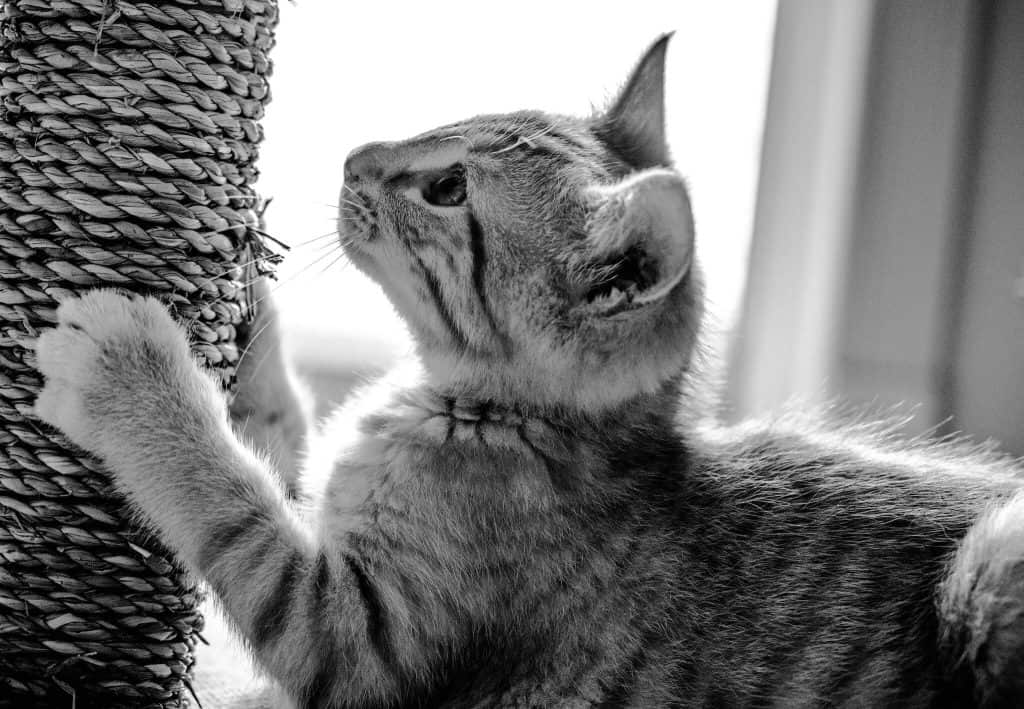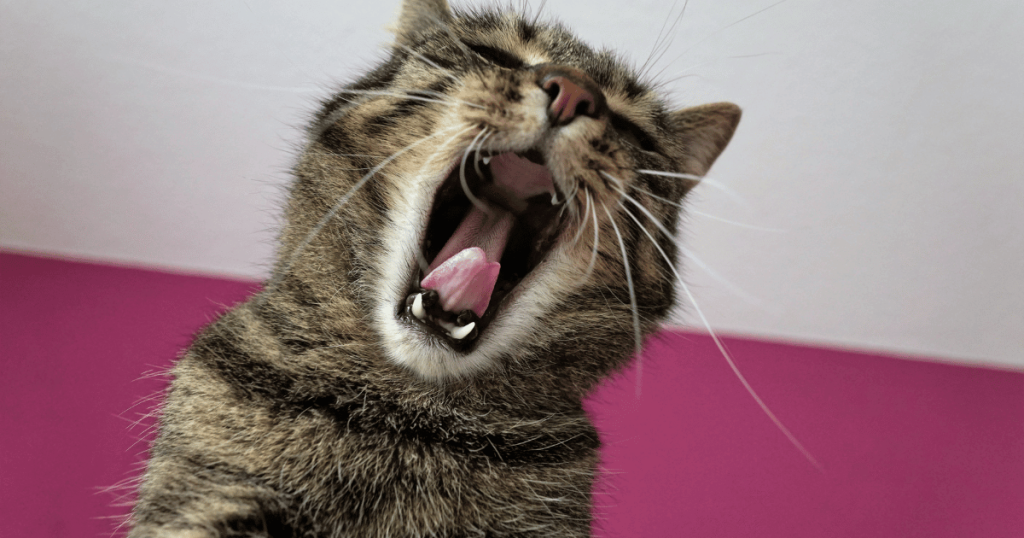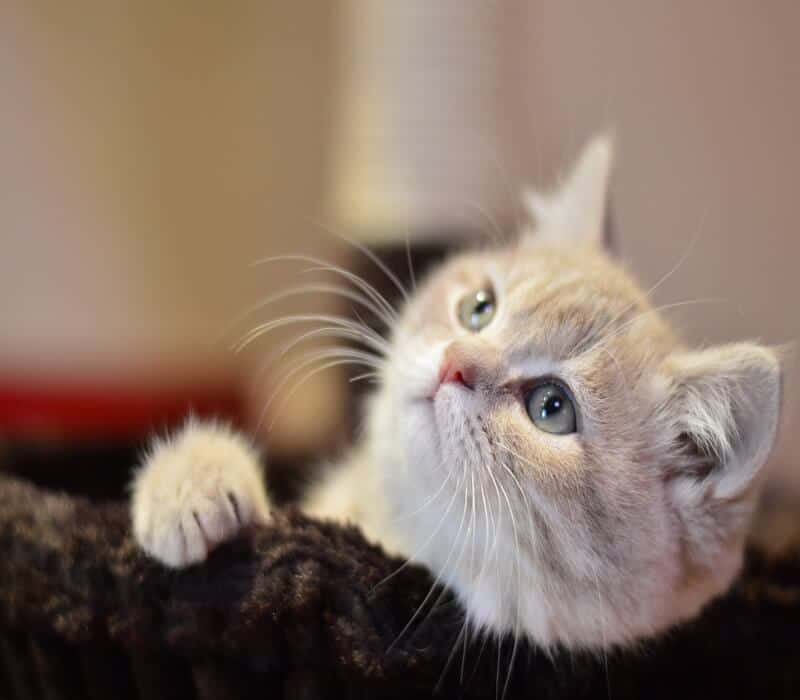
Have you ever spent a sleepless night wondering why your orphaned kitten won’t stop crying? This heart-wrenching sound can leave you feeling helpless and worried.
But here’s a surprising fact: just like human babies, kittens have their own unique language of cries, each with a different meaning.
Understanding this language is the key to soothing your little furball and ensuring they’re happy and healthy.
In this comprehensive guide, we’ll decode the mystery behind your orphaned kitten’s cries and provide practical tips to address their needs.
So, let’s dive in and turn those cries into content purrs!
The Language of Kittens: Understanding Their Development and Behavior
Just like human babies, kittens experience various stages of growth and development, each with its unique behaviors and needs.
Understanding these stages is crucial when caring for an orphaned kitten. It’s like learning a new language, only this time, it’s the language of adorable, tiny kittens!
1. The Newborn Stage: Welcome to the World, Little One
During the first week of life, kittens are entirely dependent on their mother. They are born with their eyes and ears closed and spend most of their time sleeping and feeding.
At this stage, their primary form of communication is through soft mews and purrs, often signaling their need for warmth and food.
2. The Eyes and Ears Open Stage: Hello, World!
Between the second and the third week, kittens start opening their eyes and ears, beginning significant sensory development.
They begin to respond to light, movement, and sounds around them. You might notice your kitten starting to explore their surroundings, albeit clumsily.
Think of this stage as a toddler’s first step. They’re curious and eager to explore, but they’re also unsteady and need plenty of supervision.
3. The Socialization Stage: Playtime Begins

From the fourth week onwards, kittens become more active and playful.
They start interacting with their siblings, if they have any, and begin to show interest in toys. This stage is crucial for their social development.
Practical Example: Introduce soft, safe toys for your kitten to play with. A small ball or a soft plush toy can help stimulate their predatory instincts in a safe and controlled environment.
4. The Weaning Stage: Transitioning to Solid Food
Around the eighth week, kittens start the transition from their mother’s milk or formula to solid food. This stage can be messy and requires patience.
Helpful Tip: Start by offering wet kitten food mixed with formula to create a mushy consistency. Gradually reduce the amount of formula over time until they’re eating only wet food.
Why is My Orphaned Kitten Crying? Unraveling the Mystery
Understanding why your orphaned kitten cries can feel like decoding a complex puzzle.
However, by paying close attention to their behavior and physical condition, you can start to make sense of their needs and concerns.
1. Could it be Hunger?
Kittens, especially newborns, have a surprisingly large appetite for their tiny size. This is because they are rapidly growing and developing, requiring a substantial amount of nutrients.
Newborn kittens typically need to be fed every two hours. That’s right, every two hours! If your little furball is crying, they may be simply hungry.
It’s important to note that kittens require a special formula milk replacer, as cow’s milk can cause digestive issues.
2. Feeling Cold?
Kittens cannot regulate their body temperature until they’re about three weeks old.
This is a survival mechanism in the wild, where the mother cat would provide the necessary warmth.
In the absence of their mother, an orphaned kitten might feel cold and start crying.
3. Loneliness and the Need for Companionship

Kittens are inherently social creatures. They are used to the company of their mother and siblings, and in their absence, they can feel lonely.
If your orphaned kitten is crying, it could be a cry for attention and companionship.
4. Health Concerns
Kittens, like human babies, might cry when they’re not feeling well. They are susceptible to a range of health issues, including upper respiratory infections, fleas, and dehydration.
These conditions can cause discomfort and distress, leading to increased crying.
Regular vet check-ups are crucial to ensure your kitten is healthy and to address any potential health issues promptly.
Soothing Your Crying Orphaned Kitten: Practical Tips and Actionable Advice
When it comes to soothing a crying orphaned kitten, understanding their needs and providing appropriate care is key.
Here’s how you can address some of the common reasons behind their distress.
1. Feeding and Hydration: Nourishing the Tiny Tummy
Feeding a kitten might initially seem like a daunting task, especially if you’re new to it. However, with a bit of practice and the right tools, you’ll soon get the hang of it.
Kittens require a special formula milk replacer, which should be fed using a small bottle designed specifically for kittens.
The milk should be warm, but not hot, to mimic the temperature of the mother cat’s milk.
As kittens grow, they will start transitioning to solid food, a process known as weaning. During this stage, ensuring that your kitten stays hydrated becomes even more important. They might not drink water on their own immediately, so it’s crucial to provide wet food to supplement their water intake.
2. Providing Warmth: Creating a Cozy Haven
A warm environment is essential for a kitten’s well-being. Kittens can’t regulate their body temperature until they’re about three weeks old, so they rely on external sources for warmth.
Providing a warm, cozy space for your kitten to sleep can help them feel safe and comfortable.
You can use a heating pad set on low or a warm water bottle wrapped in a soft towel to provide warmth.
However, it’s important to ensure that the heat source is not too hot to avoid burns. Always monitor the temperature and adjust as necessary.
3. Stimulation and Social Interaction: Fostering Healthy Development

Playtime is not just fun for kittens; it’s crucial for their development. It helps them hone their hunting skills, provides much-needed exercise, and stimulates their minds.
When playing with your kitten, use toys instead of your hands to avoid encouraging biting and scratching.
There are a variety of kitten-safe toys available that can provide hours of entertainment and enrichment for your furry friend.
4. Health Care: Ensuring a Healthy Growth
Regular vet visits are a must to ensure your kitten is growing healthy. Your vet can guide you on the necessary vaccinations, deworming schedules and address any health concerns promptly.
Remember, early detection and treatment of potential health issues can make a significant difference in your kitten’s overall health and well-being. So, don’t skip those vet appointments!
When to Seek Professional Help
While it’s rewarding to care for an orphaned kitten, it’s also a big responsibility.
If your kitten’s crying persists despite your best efforts, it’s time to seek professional help.
A vet or a professional kitten rescuer can provide the necessary care and guidance.
Conclusion
We hope this guide has provided you with valuable insights into why your orphaned kitten won’t stop crying and how to address their needs effectively.
Remember, every kitten is unique and might require different approaches. Don’t hesitate to seek professional help if needed.
We’d love to hear about your experiences and any tips you might have. Feel free to drop a comment below, share your story, or ask any questions about the topic.
Your input could help other kitten caregivers navigate this challenging journey.
Frequently Asked Questions
Why Does My Orphaned Kitten Cry So Much?
Orphaned kittens, especially those in their first few weeks of life, often cry due to basic needs such as hunger or cold. They are used to the constant care of their mother, which includes regular feeding and warmth. If these needs are not met, the kitten may cry as a way of signaling distress.
How Can I Soothe My Crying Orphaned Kitten?
Gentle stroking and petting can help soothe a crying kitten. This not only calms them down but also helps in forming a strong bond between you and the kitten. Focus on petting your kitten’s head, neck, and under its chin while avoiding sensitive areas like the tail. Providing a warm, cozy space and regular feeding can also help in reducing their distress.
Is Frequent Crying Normal for Orphaned Kittens?
Contrary to what one might think, very young kittens rarely cry. Frequent crying could be an indication that the kitten is cold, hungry, sick, or in pain. If your orphaned kitten is crying frequently, it’s important to check if all their basic needs are being met and to consult a vet to rule out any health issues.
We're an affiliate
We hope you love the products we recommend! Just so you know, gameraround.com is a participant in the Amazon Services LLC Associates Program, an affiliate advertising program designed to provide a means for sites to earn advertising fees by linking to Amazon.com.



